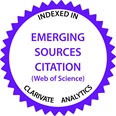Tytuł
Ocena wpływu regulacji i polityki regulacyjnej na rzecz lepszego ekosystemu przedsiębiorczości. Przypadek Polski
Keywords
regulatory impact assessment regulatory policy, government failure, entrepreneurship
Słowa kluczowe
ocena wpływu regulacji,polityka regulacyjna,zawodność państwa przedsiębiorczość
Abstract
The relationship between regulatory framework and entrepreneurial activity can be of a three-fold nature: law can foster entrepreneurship, hinder entrepreneurship or be neutral in this respect. One of the tools to underpin the capacity of public policy makers to ensure that regulation achieves its objective is the regulatory impact assessment (RIA). OECD defines RIA as ‘a systemic approach to critically assessing the positive and negative effects of proposed and existing regulations and non-regulatory alternatives’. The objective of this paper is to examine the potential contribution of the regulatory impact analysis to building a more effective entrepreneurial ecosystem by reducing so-called ‘government failure’, in particular in Polish circumstances. The concern is not for specific legal provisions but the policy-making process, in which RIA is integrated. For this purpose, it reviews the RIA policies and practice in Poland and other OECD countries as well as in the EU. The methods used entail a qualitative document analysis on policy documents, in particular: legislative acts, guidelines and working papers issued by national, OECD and EU authorities, as well as reports and statistics in this field, in particular: the OECD Indicators of Regulatory Policy and Governance (iREG) to make cross-country comparisons and identify challenges in the effective implementation of RIA.
Abstrakt
może wspierać przedsiębiorczość, hamować ją lub być neutralne w tym względzie. Jednym z narzędzi wzmacniających zdolność decydentów publicznych zapewnienia skuteczności prawa jest ocena wpływu (Regulatory Impact Analysis, RIA), czyli – według OECD – systemowe podejście do krytycznej oceny pozytywnych i negatywnych efektów proponowanych lub obowiązujących regulacji prawnych oraz wariantów nielegislacyjnych. Celem artykułu jest zbadanie, jak ocena wpływu może przełożyć się na tworzenie lepszego otoczenia prawnego dla przedsiębiorczości poprzez zmniejszenie tzw. zawodności państwa (government failure), szczególnie w odniesieniu do Polski. Problem nie dotyczy konkretnych regulacji prawnych, ale procesu stanowienia prawa. W tym celu dokonano przeglądu podejść do oceny wpływu stosowanych w Polsce i innych krajach OECD, a także UE. Zastosowane metody obejmują jakościową analizę dokumentów: przepisów prawnych, wytycznych oraz dokumentów programowych – krajowych, OECD oraz unijnych, jak również raportów i danych statystycznych w tym zakresie, min. wskaźników OECD dotyczących polityki regulacyjnej i sprawowania rządów, umożliwiających porównania między państwami oraz identyfikację wyzwań w efektywnej implementacji oceny wpływu regulacji.
Recommended Citation
Kubera, P. (2017). Evaluating the Impact of Regulation and Regulatory Policy – Towards Better Entrepreneurial Ecosystem. The Case of Poland. Problemy Zarządzania, 15(65), 237-253. https://doi.org/10.7172/1644-9584.65.15
First Page
237
Last Page
253
Page Count
16
DOI
10.7172/1644-9584.65.15
Publisher
University of Warsaw







